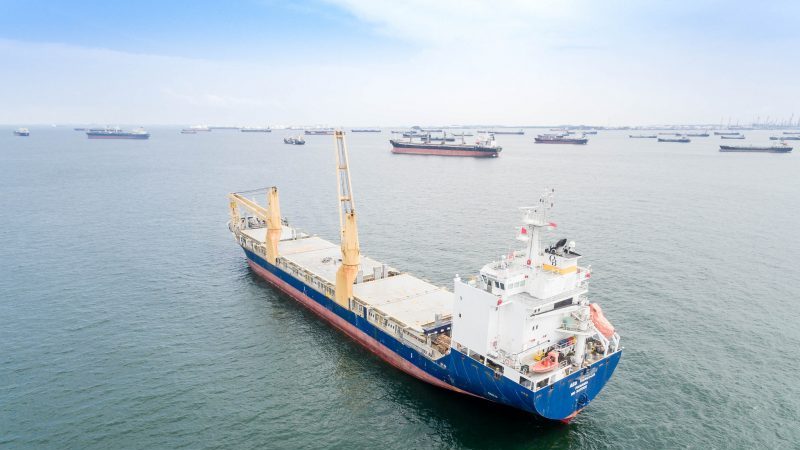As talks on a climate target for shipping started in London on Tuesday, there were huge divides over the level of ambition.
Kitack Lim, head of the International Maritime Organization, told negotiators further delay in agreeing the initial strategy – due by the end of next week – “should not be an option”.
In a rare demonstration, campaigners daubed “IMO don’t sink Paris” opposite the UN body’s headquarters, while Transparency International raised concerns about potential conflicts of interest at the IMO.
Climate Home News’ former editor Ed King wrote a handy primer on what could be the climate deal of 2018.
So are countries any closer to consensus? Look out for an update later on Friday.
Freedom from oil
Costa Rica already runs on nearly 100% clean electricity. Now its president-elect Carlos Alvarado Quesada wants to clean up transport.
Addressing his supporters on Sunday, he promised a future when the country can “celebrate its emancipation from petrol and diesel”, Diego Arguedas Ortiz reports.
While he did not set a deadline for ending fossil-fuelled vehicle sales, as some leaders have, Alvarado Quesada’s manifesto includes measures to support that transition.
Legal bombshell
Shell became the latest oil major targeted for a climate change lawsuit. Friends of the Earth Netherlands warned the company to align its business with the Paris Agreement or face them in court.
Lending ballast to the legal challenge was an investigation by De Correspondent into what #ShellKnew about climate change and when. Internal documents, also published with English notes by the Climate Investigations Center, show Shell not only understood the science in 1988 but was remarkably prescient about its legal vulnerabilities.
“In 2010, a series of violent storms causes extensive damage to the eastern coast of the US,” it foresaw in one scenario published in 1998. “Following the storms, a coalition of environmental NGOs brings a class-action suit against the US government and fossil-fuel companies on the grounds of neglecting what scientists (including their own) have been saying for years: that something must be done.”
Wrong jurisdiction, but right idea. If only they’d prepared for it.
Bight watch
It took nearly two years for the Australian government to release these documents on BP’s abandoned plan to drill for oil in the Great Australian Bight. BP fought the freedom of information request every step of the way.
Climate Home News can now reveal what they were hiding: BP’s assessment that a major oil spill in the region would cover up to 750km of coastline and disrupt whale migration.
Statoil, which has taken over two of BP’s leases in the Southern Ocean, will have to address those risks if it is to explore for oil there.
Climate conversations
10 years of success, but the UK climate change act needs an upgrade – John Krebs and Joanna Haigh
Beef blindspot
Norway’s $1 trillion oil fund has blacklisted 58 companies and put others on notice over deforestation in their supply chains. So how did it miss JBS, the biggest buyer of cattle in the Amazon, wonders Fabiano Maisonnave?
The meat supplier was fined $7.7 million last year over its sourcing of cattle from illegally deforested areas. It is also embroiled in a corruption case involving Brazil’s president – a fact the Norwegian fund did raise concerns about.
Coal clean-up
Following Mark Olalde’s Reclaiming Coal investigation, the US Government Accountability Office has independently confirmed many of its findings.
The federal agency urged Congress to consider a ban on “self-bonding”, a system that risks burdening taxpayers with the clean-up cost of disused coal mines.
